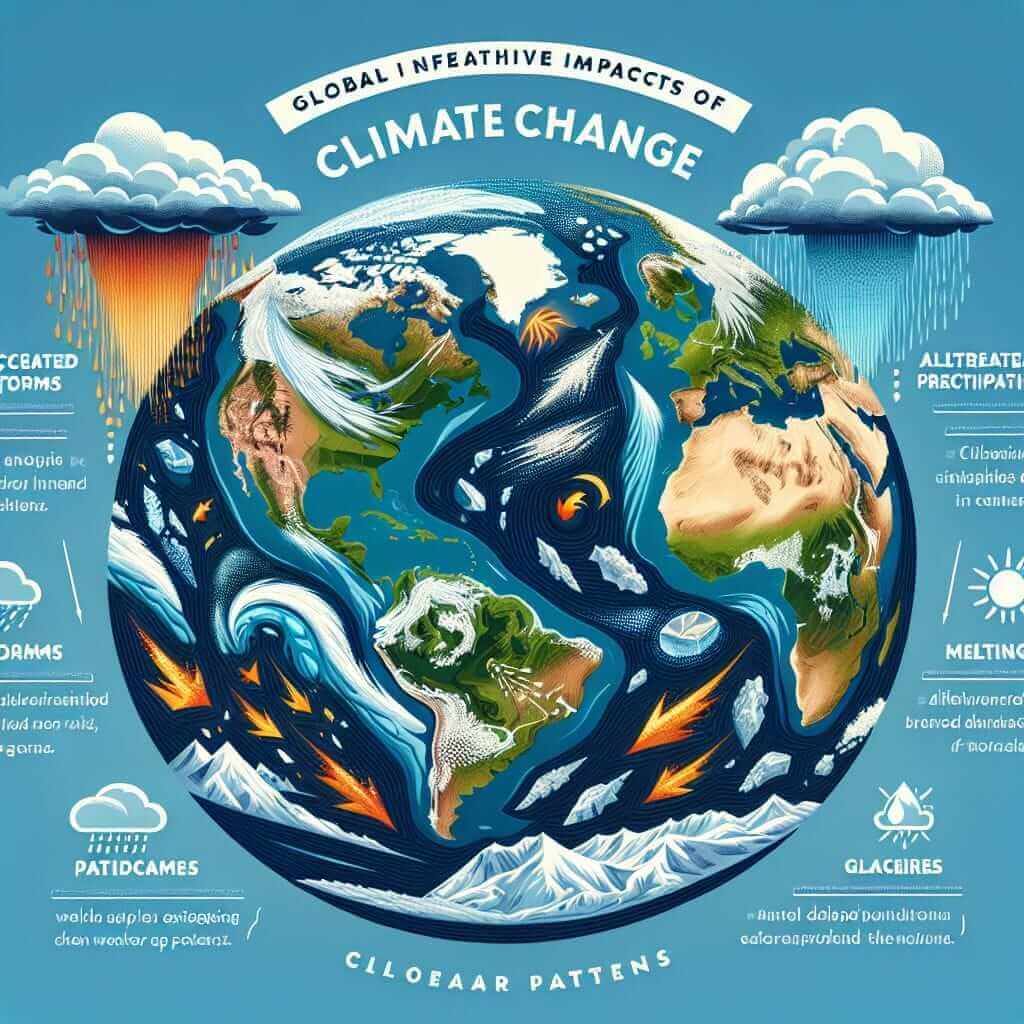The IELTS Reading test is designed to assess a candidate’s ability to read and understand complex texts. Topics of global relevance, such as climate change and its effects, frequently appear in the exam. Understanding how climate change affects global weather patterns not only broadens your knowledge but also helps you prepare for such themes in the test. This article will provide a detailed reading passage on this topic, followed by questions, answers, and explanations to help improve your IELTS Reading skills.
Main Content
IELTS Reading Practice Passage: How Does Climate Change Affect Global Weather Patterns?
The Passage
Climate change refers to long-term changes in temperature, precipitation, and other atmospheric conditions on Earth. Scientists overwhelmingly agree that human activities, particularly the emission of greenhouse gases, are accelerating these changes. As a result, global weather patterns are becoming increasingly unpredictable, leading to numerous environmental, economic, and social impacts.
One of the most significant effects of climate change is the increase in the frequency and intensity of extreme weather events. Hurricanes, storms, and typhoons are occurring more often and with greater ferocity. Warmer ocean temperatures provide more energy for these storms, making them more powerful. Additionally, warmer air holds more moisture, leading to more intense rainfall and higher risks of flooding.
Another impact of climate change is the alteration of precipitation patterns. Some regions experience more severe droughts, while others see an increase in heavy rainfall. This shift disrupts water supplies, agriculture, and biodiversity. For example, regions that traditionally depended on seasonal rains are now facing prolonged dry periods, affecting crop yields and water availability.
Furthermore, global temperatures are rising, causing the polar ice caps and glaciers to melt. This melting contributes to sea-level rise, which threatens coastal communities around the world. Low-lying areas are particularly vulnerable, with increasing risks of erosion and saltwater intrusion into freshwater supplies. The loss of ice also affects global weather patterns by influencing ocean currents and wind patterns.
In addition to these direct impacts, climate change also has indirect effects on human health and migration patterns. Heatwaves and air pollution exacerbate respiratory and cardiovascular diseases. Changing weather conditions force people to migrate, leading to potential conflicts over resources and habitat.
Many experts believe that the future of global weather patterns will depend heavily on our efforts to reduce greenhouse gas emissions and transition to renewable energy sources. International agreements, such as the Paris Agreement, emphasize the importance of collective action to mitigate climate change and adapt to its impacts.
Shortcode Image

Practice Questions
Question Type: Multiple Choice
-
What is the main cause of the acceleration in climate change according to the passage?
A. Natural weather variations
B. Human activities
C. Ocean currents
D. Solar activity -
Which of the following weather phenomena is NOT mentioned as being intensified by climate change?
A. Hurricanes
B. Tornadoes
C. Typhoons
D. Storms
Question Type: Identifying Information (True/False/Not Given)
-
Warmer air holds less moisture, leading to droughts.
A. True
B. False
C. Not Given -
The melting of polar ice does not influence ocean currents.
A. True
B. False
C. Not Given
Answer Key and Explanations
-
B. Human activities
Explanation: The passage states that human activities, particularly the emission of greenhouse gases, are the main cause of accelerated climate change. -
B. Tornadoes
Explanation: While hurricanes, typhoons, and storms are mentioned, tornadoes are not specifically cited in the passage. -
B. False
Explanation: The passage mentions that warmer air holds more moisture, not less, leading to more intense rainfall and flooding. -
B. False
Explanation: The passage states that the melting of polar ice affects ocean currents and wind patterns.
Common Mistakes in Reading
- Misunderstanding the Question: Ensure you understand what the question is asking before choosing your answer.
- Not Skimming for Information: Practice skimming for key phrases to quickly locate answers.
- Ignoring Keywords: Focus on keywords in the passage and in the questions to find accurate responses.
Vocabulary and Grammar
Key Vocabulary
- Acceleration (n): /əkˌsɛləˈrɛɪʃən/ – the increase in speed or rate
- Precipitation (n): /prɪˌsɪpɪˈteɪʃən/ – rainfall, snow, sleet, or hail that falls to the ground
- Erosion (n): /ɪˈrəʊʒən/ – the process of eroding or being eroded by wind, water, or other natural agents
- Intrusion (n): /ɪnˈtruːʒən/ – the act of entering or invading a place or situation, especially rudely or badly
Grammar Tips
- Relative Clauses: “Scientists, who study the climate,…” helps provide additional information without starting a new sentence.
- Comparative Adjectives: “Warmer air holds more moisture…” for effective comparison.
Conclusion
Practicing with realistic IELTS reading passages on current and relevant topics like climate change can enhance your performance in the exam. Utilize the questions and explanations provided to sharpen your reading comprehension skills. For further reading practice, consider exploring articles on the effects of climate change on global disease patterns and the impacts of climate change on water scarcity.
Final Tips
- Time Management: Allocate time wisely to read passages and answer questions.
- Practice Regularly: Consistency is key in improving reading skills.
- Revise Vocabulary: Expanding your vocabulary will help you understand complex texts better.
By diligently practicing with these materials, you can significantly improve your IELTS Reading score. Best of luck with your studies!